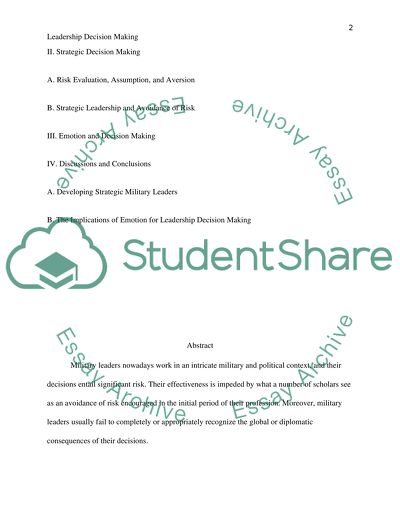Cite this document
(“Leadership--Decision Making Essay Example | Topics and Well Written Essays - 2000 words”, n.d.)
Retrieved from https://studentshare.org/military/1427907-leadership-decision-making
Retrieved from https://studentshare.org/military/1427907-leadership-decision-making
(Leadership--Decision Making Essay Example | Topics and Well Written Essays - 2000 Words)
https://studentshare.org/military/1427907-leadership-decision-making.
https://studentshare.org/military/1427907-leadership-decision-making.
“Leadership--Decision Making Essay Example | Topics and Well Written Essays - 2000 Words”, n.d. https://studentshare.org/military/1427907-leadership-decision-making.


